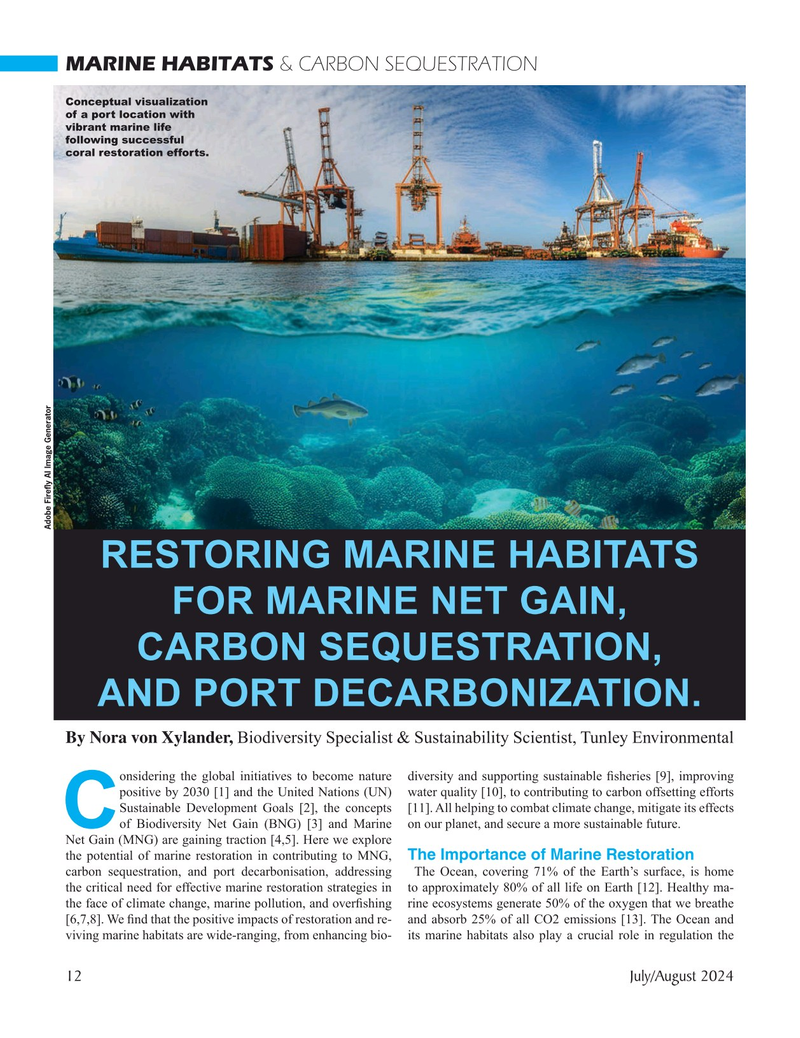
Page 12: of Marine Technology Magazine (July 2024)
Read this page in Pdf, Flash or Html5 edition of July 2024 Marine Technology Magazine
MARINE HABITATS & CARBON SEQUESTRATION
Conceptual visualization of a port location with vibrant marine life following successful coral restoration efforts.
Adobe Fire? y AI Image Generator
RESTORING MARINE HABITATS
FOR MARINE NET GAIN,
CARBON SEQUESTRATION,
AND PORT DECARBONIZATION.
By Nora von Xylander, Biodiversity Specialist & Sustainability Scientist, Tunley Environmental onsidering the global initiatives to become nature diversity and supporting sustainable ? sheries [9], improving positive by 2030 [1] and the United Nations (UN) water quality [10], to contributing to carbon offsetting efforts
Sustainable Development Goals [2], the concepts [11]. All helping to combat climate change, mitigate its effects
Cof Biodiversity Net Gain (BNG) [3] and Marine on our planet, and secure a more sustainable future.
Net Gain (MNG) are gaining traction [4,5]. Here we explore the potential of marine restoration in contributing to MNG, The Importance of Marine Restoration carbon sequestration, and port decarbonisation, addressing The Ocean, covering 71% of the Earth’s surface, is home the critical need for effective marine restoration strategies in to approximately 80% of all life on Earth [12]. Healthy ma- the face of climate change, marine pollution, and over? shing rine ecosystems generate 50% of the oxygen that we breathe [6,7,8]. We ? nd that the positive impacts of restoration and re- and absorb 25% of all CO2 emissions [13]. The Ocean and viving marine habitats are wide-ranging, from enhancing bio- its marine habitats also play a crucial role in regulation the 12 July/August 2024
MTR #5 (1-17).indd 12 7/23/2024 1:40:32 PM

 11
11

 13
13
